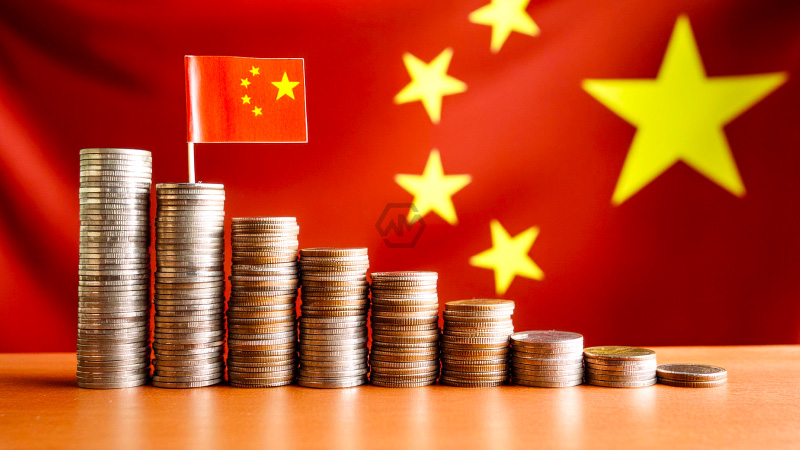- China‘s August economic data shows a slowdown in industrial production, retail sales, and real estate investment.
- Pressure mounts for Beijing to implement large-scale stimulus measures to revive the economy.
- Core CPI rose only 0.3%, the lowest in over three years, reflecting persistent deflationary pressures.
China’s economy experienced a noticeable slowdown in August, marked by weaker growth across multiple sectors. Industrial production rose by 4.5%, but this was a decline from July’s 5.1% growth.
Retail sales also faltered, increasing by only 2.1% compared to 2.7% the previous month. The real estate sector saw significant declines, with investment falling by 10.2% year-over-year.
China’s Economic Struggles Deepen as Weak Demand Persists
In response, Beijing is under pressure to implement more robust economic stimulus measures. Consumer demand remains subdued, and deflationary pressures persist, particularly in manufacturing and core consumer prices. Although the overall CPI rose 0.6%, the increase was driven largely by food prices, not by underlying economic strength. The ongoing contraction in real estate and tepid growth in fixed asset investment reflect deeper systemic issues that need addressing.
The real estate sector continued its downward spiral, with investment declining by over 10% from January to August. This extended slump has raised concerns about the long-term stability of one of China’s most critical economic drivers. While the government has ramped up investments in manufacturing, the overall economic output still falls short of pre-pandemic expectations.
Beijing is now facing growing pressure to implement large-scale fiscal and monetary stimulus to jumpstart demand. However, previous stimulus efforts have had limited impact on addressing the structural challenges that the economy faces. Weak consumer confidence and persistent deflationary pressures, especially in factory output, underscore the need for more targeted and effective policy measures.
The consumer price index (CPI) increased by 0.6% in August, missing market forecasts. This modest rise was primarily driven by higher food prices due to unfavorable weather conditions, while the core CPI—excluding volatile food and energy prices—rose by only 0.3%. This marks the slowest pace of core inflation in over three years, reflecting broader deflationary risks that could further hamper economic recovery efforts.
China’s economic challenges continue to mount as demand weakens across various sectors. Beijing must now weigh the implementation of larger stimulus measures to revive its growth prospects amid global and domestic pressures.
“We should be aware that the adverse impacts arising from the changes in the external environment are increasing,” said Liu Aihua,



